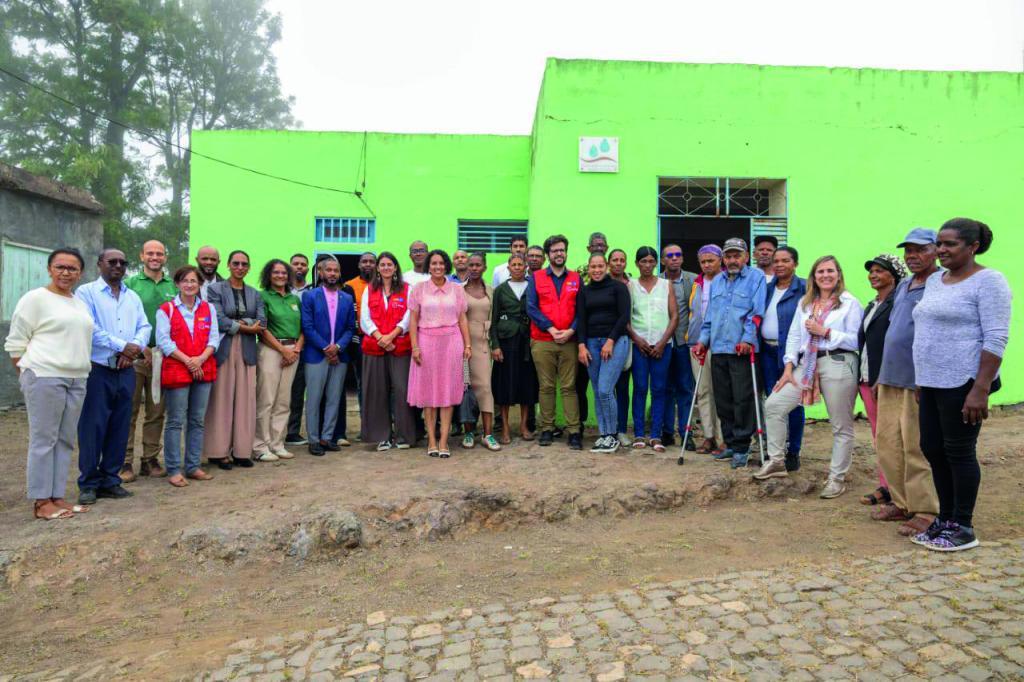Africa-Press – Cape verde. The project will increase the supply of agricultural products and improve market placement.
Improving the income of women and young people, countering the rural exodus, and generating economic opportunities for families are the objectives of the Lidera Rural project, which has now arrived in Corda, in the municipality of Ribeira Grande, Santo Antão.
Focusing on local initiatives that promote sustainable development, the project envisages the creation of an Agricultural Development Unit and a community terrace in the area, with the aim of strengthening the link between agricultural production, culture and tourism.
The overall budget for Lidera Rural, which will also develop actions in Porto Novo, Paúl and São Vicente, is 500 thousand euros, with resources from Spanish Cooperation and execution by CERAI and the Friends of Nature Association (AAN), in partnership with the Ministry of Agriculture and Environment, the Ministry of Education, FICASE, INPS and the Association of Municipalities of Santo Antão.
According to Aguinaldo David, executive director of AAN, the project aims to generate a direct impact on vulnerable groups, namely women and young people, who face high rates of unemployment and exclusion.
“The Corda community, like other dryland areas, has been affected by climate change, which has caused a growing rural exodus. This project works precisely in this direction: to generate real and sustainable opportunities that allow people to live and thrive in their communities,” he states.
The Valorization Unit will prioritize the processing of fruits, such as apples and quinces, and other local crops, such as beans and peas. The “Sabores de Corda” terrace, designed by the community, will have the mission of taking advantage of the region’s tourism potential, valuing local flavors and knowledge.
The two initiatives, launched last week, are part of a broader plan to promote social and economic rights in rural areas of Santo Antão and São Vicente.
Maria do Rosário Gomes, president of the Ponta d’Cinta Community Association, a local partner, emphasizes that the interventions in Corda will also contribute to improving the marketing of products and facilitating access to new markets.
“It’s an important project because it will allow us to improve the way we market our products before they’re released, as well as enable us to establish contacts with other markets, such as stores, school cafeterias, restaurants, cafes, and others. We’ve already participated in food fairs and now we intend to supply products to school cafeterias. Apples are our calling card, and we want to create our own brand, with the goal of generating income and strengthening the community,” he emphasizes.
Agricultural production in the area has recognized potential, but faces historical challenges, including post-harvest fruit loss. For Antônia Fortes, a resident of Corda, a processing unit was a long-standing demand of local residents.
“This is a project we’ve been pushing for our community. We have an area with significant fruit production, and until now, we hadn’t had the opportunity to have a processing plant for our fruit and the promotion of other crops. We know that these fruits are seasonal and often spoil. Now, we’ll have the opportunity to transform and preserve these fruits, which will allow us to offer them year-round, as long as they’re properly preserved,” he notes.
With the centralization of collection and processing, it will be possible to standardize quality, ensure better conservation conditions and present “Made in Corda” products.
The president of the Ponta d’Cinta Community Association highlights that one of the most anticipated impacts is the effective appreciation of local products, resulting in an improvement in the final price.
“The project will allow us to bring products to market with added value. We will collect the products from the center, and after treatment, they will be sold at a unified, fairer, and more appropriate price,” he anticipates.
On the “Sabores de Corda” terrace, tourists will have access to a selection of local products.
“We also want to introduce tourists to a local product, which will have a positive impact on family income,” explains Antonia Fortes.
Regarding long-term sustainability, promoters guarantee that this is a constant concern. Aguinaldo David, from AAN, emphasizes that community involvement in the idealization and design is crucial.
“When we think about a unit of this type, it is the target of a business plan, to understand the flow of expenses, operational costs, and market projection. Linking it to the institutional market, for example, through FICASE, with quarterly contracts and the possibility of renewal, allows for predictability in terms of sales and business (…) We always think about other markets, such as the hotel, restaurant, and catering market.”
For More News And Analysis About Cape verde Follow Africa-Press






